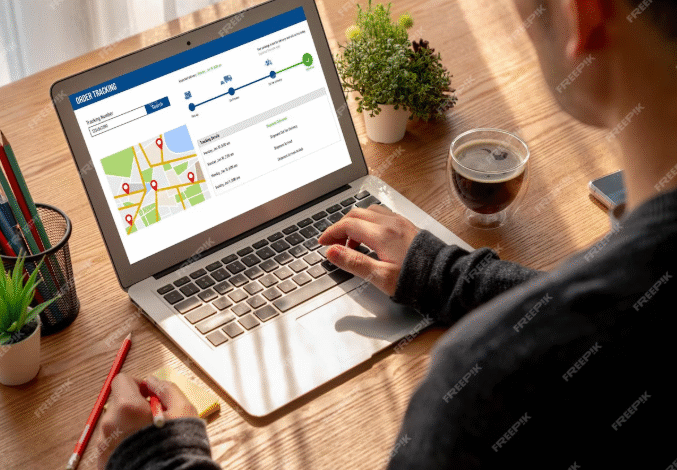Think Local, Rank Local: A Simple Guide to Local Keyword Research for Small Businesses

In today’s digital-first world, local visibility is everything for small businesses. Investing in a comprehensive business map seo service that includes targeted keyword research is essential to maximize that visibility. Whether you’re running a neighborhood bakery, a local law firm, or a cozy bookstore, showing up in local search results can mean the difference between a quiet day and a bustling one. The secret sauce? Local keyword research. It’s how you find out what your nearby customers are typing into Google—and how you ensure your business is what they find. This guide breaks down the steps for conducting local keyword research in a way that’s simple, effective, and tailored for small business success.
1. Understand What Local Keyword Research Is (and Why It Matters)
Local keyword research is all about finding the search terms your potential customers use when looking for a business like yours in your area. Think “best coffee shop in Austin” or “emergency plumber near me.”
Unlike broader SEO strategies, local keyword research zooms in on location-specific intent. Why does that matter? Because nearly half of all Google searches have local intent. When someone’s ready to buy or visit, they usually search nearby. That’s your cue.
2. Start with Your Core Services + Location
List your main services or products, then pair them with your city, neighborhood, or service area. For example, if you run a dog grooming business in Boulder, Colorado, start with phrases like:
- “dog grooming Boulder”
- “pet grooming near CU Boulder”
- “mobile dog groomer Boulder CO”
Include variations customers might use, like nearby landmarks or neighborhoods. Think like a local because your customers definitely are.
3. Use Google’s Free Tools (Seriously, They’re Gold)
You don’t need expensive software to find great local keywords. Here are a few free tools to get started:
- Google Search Autocomplete: Start typing a service into the search bar and see what Google suggests. These are actual searches people are making.
- Google’s “People Also Ask” section: Check related questions when you search a term—these can inspire blog posts, FAQs, or service pages.
- Google Keyword Planner: This tool (found inside Google Ads) gives you search volume estimates and keyword ideas. Set the location to your city or zip code to get accurate local data.
- Google Trends: Great for seeing which keywords are gaining popularity over time in your region.
4. Spy on Your Local Competitors
Take a look at what businesses like yours are ranking for. To gain a competitive edge in local searches, consider how a business map seo service can help you analyze and outperform your rivals. Just Google the kind of service you offer and note what keywords competitors use in their page titles, meta descriptions, or blogs.
Tools like Ubersuggest or Ahrefs’ free keyword generator can help you peek into competitors’ keyword strategies. Are they targeting “family dentist downtown” or “emergency dental care in Springfield”? Learn from them—and do it better.
5. Get Hyperlocal (Think Neighborhood-Level)
Don’t stop at city-level keywords. Local search is often hyper-specific. People search for “hair salon Capitol Hill Seattle” or “pizza near Prospect Park Brooklyn.” Add those granular location tags to your list. Also, consider what your customers call the area—locals might say “South Philly” instead of “South Philadelphia,” for example.
Pro tip: Don’t forget “near me” phrases. Google personalizes these based on the searcher’s location, but including “near me” in your content and meta tags can still help your visibility.
6. Organize and Prioritize Your Keywords
Once you’ve gathered a list of potential local keywords, organize them into categories like:
- Core services (“plumber in Tampa”)
- Long-tail keywords (“24/7 emergency plumber downtown Tampa”)
- Question-based searches (“how to unclog a drain without a plumber”)
Then prioritize based on:
- Search volume(how many people are searching)
- Competition(how hard it is to rank)
- Relevance(how closely the keyword matches what you offer)
Focus on keywords that balance good volume and lower competition, especially if your site is new or has a limited online presence.
7. Put Your Keywords to Work
Finding the right keywords is not enough—you need to use them. Incorporate them naturally into:
- Page titles and meta descriptions
- Homepage and service pages
- Blog posts and FAQs
- Image alt text
- Your Google Business Profile (super important!)
Just remember: don’t keyword-stuff. Google favors helpful, readable content over awkwardly forced phrases.
Conclusion: Your Local SEO Starts with the Right Words
Local keyword research isn’t rocket science, but it is the rocket fuel behind your local SEO success. With the right keywords in place, you’ll make it easier for nearby customers to find you exactly when they need what you offer. It’s all about showing up, standing out, and staying relevant in the digital neighborhood. Now that you know how to dig into local keyword research, it’s time to get to work—and get discovered.



